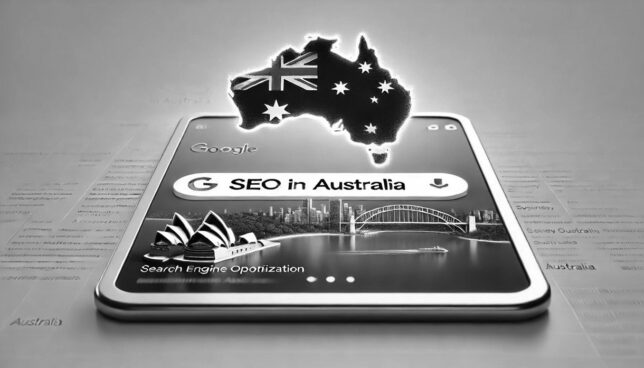
Introduction
SEO in Australia and the southern hemisphere comes with unique challenges, from seasonal search intent shifts to regional connectivity issues.
While many fundamental SEO principles remain universal, several factors – ranging from geographic and cultural differences to local search engine behaviours – affect how businesses should approach optimisation.
Understanding these differences is crucial for businesses aiming to optimise their online presence effectively.
Seasonal Differences and Search Intent
Most online content and trends originate from the northern hemisphere, where seasonal patterns drive search behaviour.
However, in Australia, the seasons are reversed.
This means search intent for fashion, travel, and seasonal promotions must be adjusted accordingly.
For example, an online retailer writing about “winter jackets” in June must clarify whether they are referring to the Australian winter or the northern hemisphere winter.
Businesses targeting both local and international audiences must carefully optimise their content calendars to align with regional seasonality.
Google’s Local Search Priorities in Australia
Australia is a relatively small but high-value market, and Google treats it differently from the US and Europe.
Google My Business (now Google Business Profile) plays a particularly significant role in Australia due to the country’s vast geography and dispersed population.
The strength of local citations – mentions of businesses in directories and media – is crucial for Australian companies aiming to rank in local searches.
Mobile-First and Regional Connectivity Issues
Australia has high mobile usage, but many rural and regional areas still experience slower internet speeds.
This makes site speed and mobile optimisation even more critical in Australia than in places with more reliable networks.
Ensuring that web sites load quickly and function smoothly on mobile devices is essential for businesses targeting audiences outside major metropolitan areas.
Trust and Authority – .com.au vs .com
Australians tend to trust businesses with a .com.au domain more than a generic .com.
Having a .com.au domain requires an Australian Business Number (ABN), which adds legitimacy.
For businesses targeting both Australian and international audiences, a dual-domain or hreflang strategy – how search engines know which language version to show – may be necessary to prevent content duplication and maintain credibility in multiple markets.
SEO in a Smaller, More Concentrated Market
With a population of approximately 26 million, Australia has lower overall search volume than the US or Europe.
While this can mean less competition for high-volume keywords, it also makes niche SEO and long-tail keyword strategies more valuable.
Additionally, businesses must focus on brand awareness and direct traffic, as SEO alone may not generate the same scale of organic visibility as in larger markets.
AI and Australian Search Trends
Google’s rollout of AI-powered search results, such as Search Generative Experience (SGE), is affecting SEO strategies worldwide.
Australian businesses may need to rethink traditional SEO approaches earlier than some other regions, depending on how quickly Google’s AI features are introduced.
Cultural and Language Considerations
Australian slang and colloquialisms play a role in keyword research and content creation.
Understanding local language variations – such as “holiday” instead of “vacation” or “biscuit” instead of “cookie” – can improve search rankings and engagement.
However, businesses should use slang appropriately, as overuse may alienate certain audiences.
Cultural sensitivities must also be considered to ensure that content resonates with local consumers without being perceived as inappropriate.
Search Engine Preferences and Competition
Google dominates the search engine market in Australia, making it the primary focus for SEO efforts.
However, search engines like Bing and DuckDuckGo have a small but growing user base.
The Australian market is highly competitive, especially in major cities like Sydney and Melbourne.
Businesses must conduct thorough keyword research and competitor analysis to identify opportunities and develop effective SEO strategies.
Local SEO and Geographic Targeting
Geographic targeting is essential for businesses operating in specific Australian regions or cities.
Local SEO strategies should include:
- Using location-based keywords.
- Creating and optimising a Google Business Profile.
- Building high-quality local citations.
- Taking into account legal and regulatory considerations
Consumer protections
Australian businesses must comply with privacy laws, such as the Privacy Act 1988, when collecting and using personal data for marketing purposes.
Consumer protection laws, such as the Australian Consumer Law, must also be adhered to, ensuring ethical marketing practices and avoiding legal issues related to misleading advertising or data misuse.
Content Marketing and Link Building
High-quality, informative, and engaging content remains a cornerstone of successful SEO in Australia.
Businesses should focus on:
- Creating valuable content that addresses local issues and interests.
- Promoting content through social media, email marketing, and influencer outreach.
- Building backlinks from reputable Australian web sites, which helps improve authority and search engine rankings.
Staying Updated on Industry Trends
The SEO landscape is constantly evolving, requiring businesses to stay informed on the latest trends and best practices.
Following industry blogs, attending conferences, and engaging with other SEO professionals are essential strategies for staying ahead.
Conclusion
While many global SEO principles apply to Australia and the southern hemisphere, the unique challenges of seasonality, geography, language, and competition require tailored approaches.
Businesses that account for these factors in their SEO strategies will be better positioned to improve visibility and to connect with their target audiences effectively, to gain a competitive edge.
Need expert guidance on refining your SEO approach? Contact us today.
#SEO #AustralianSEO #SearchEngineOptimisation #LocalSEO #DigitalMarketing #GoogleRankings #OnlineVisibility #SEOAustralia #ContentMarketing #MarketingStrategy
